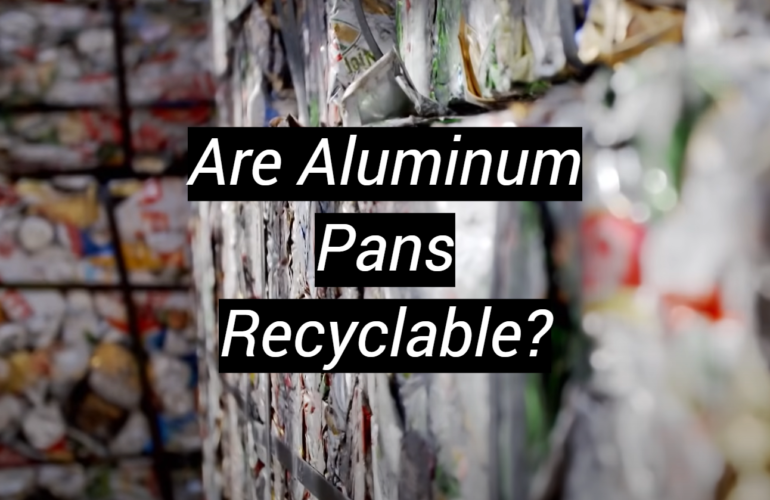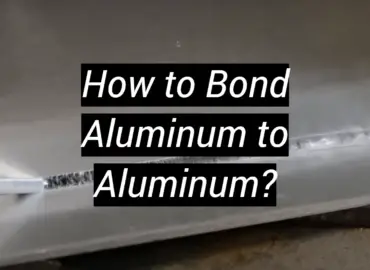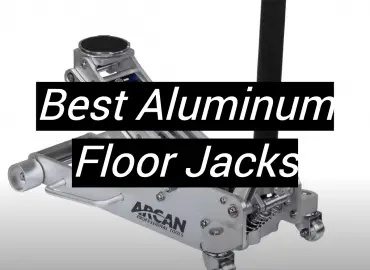The prevalence of single-use items and throwaway packaging has made it ever clearer that our environmental impact needs to be addressed. One way we can proactively save resources and energy is through recycling.
We’ve all heard the mantra: reduce, reuse, recycle — but what does this actually mean for everyday objects that we use? In particular, what about aluminum pans? These kitchen staples are essential for a variety of cooking tasks; however, they may not immediately seem like something that could be recycled successfully.
In today’s blog article, we answer this question: can I recycle aluminum pans? We’ll explore the background information regarding the importance of recycling as well as dive into how you can responsibly go about disposing or reusing your aluminum pan without causing harm to our planet.
Why Is It Necessary to Get Involved in Recycling?
Recycling is an important part of preserving the environment and protecting our natural resources for future generations. By using recycled materials, we can reduce the amount of waste that goes to landfills and incinerators, cutting down on pollution and energy consumption. Additionally, recycling helps create jobs in our communities, which leads to a healthier economy. [1]
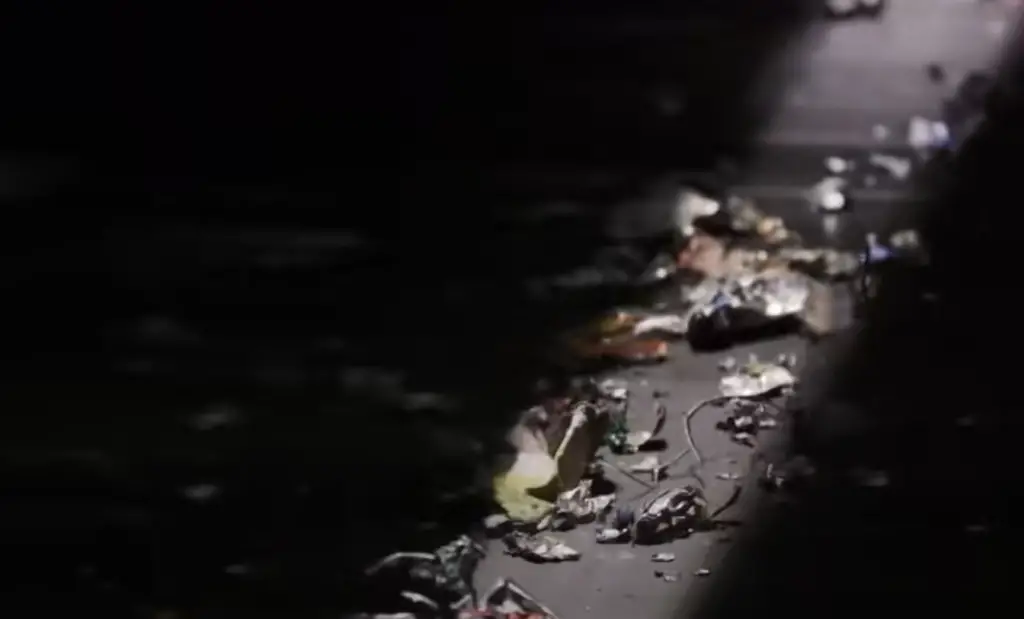
Recycling also enables us to conserve valuable resources like paper, aluminum, plastic, steel, glass, water and oil so they can be reused again instead of being discarded. By taking part in local recycling programs or simply reusing items at home or work, you can help protect our planet and preserve its beauty for years to come.
It’s easy to get involved – start by learning about your local recycling program and identify what materials can be recycled in your area. Then, start implementing small changes like using reusable containers for lunch instead of disposable ones. Every little bit helps! [2]
What Materials Must Be Recycled?
Recycling requires that certain materials be separated from the waste stream. The most common items to recycle are paper, plastic, glass, aluminum cans, and cardboard. Other items such as textiles, electronics, tires, batteries, and certain types of packaging can also be recycled. Many communities have specific guidelines regarding what can and cannot be included in their recycling program so it is important to check with your local municipality for details on what can be recycled in your area. Moreover, many grocery stores offer special bins for collecting plastics and other recyclable items for collection by a recycling center or company.
In addition to materials that can be recycled, there are also items that cannot be recycled. These include hazardous wastes such as paint, pesticides, and motor oil; single-use disposables such as Styrofoam and plastic utensils; electronics such as phones and computers; light bulbs; some types of packaging materials; and medical waste. Many of these items may have special guidelines for safe disposal or require special handling when sorting through the trash, so it is important to read labels carefully before discarding anything in your household waste stream. [3]
How Is Aluminum Used in the Household?
Aluminum is widely used in household items, such as foil, cookware, window frames, and gutters.
- Aluminum foil is an incredibly versatile kitchen item that can be used to wrap food for storage or cooking, line pans to prevent sticking and burning of food, and even cover baking dishes.
- Aluminum cookware is lightweight and also conducts heat evenly, making it ideal for preparing family meals and baking desserts.
- Aluminum window frames are a popular choice for homes because they’re strong yet lightweight and require minimal maintenance.
- Aluminum gutters help protect the home’s exterior from water damage by safely draining rainwater away from the roofline. In addition to its practical uses in the home, the material is often used in decorative items like wall art and sculptures. [4]
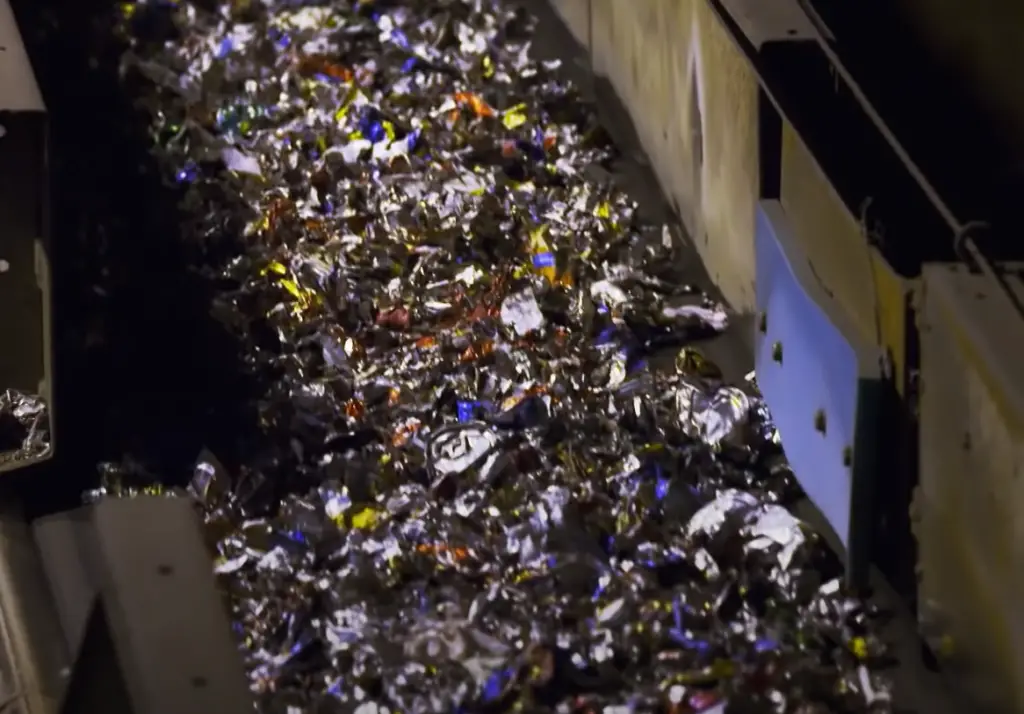
So aluminum is an essential material for homes and has numerous practical applications. It can easily be recycled when it’s no longer needed, making it an eco-friendly choice.
The answer to the question, “Are aluminum pans recyclable?” is a resounding yes! By recycling your aluminum cookware and other items made with aluminum, you can help conserve resources and protect the environment. With proper care and maintenance, aluminum can be used for years before needing to be recycled.
The Advantages of Using Aluminum Pans
Aluminum pans offer a number of advantages for baking. They are lightweight and easy to use, making them ideal for transporting cakes or other baked goods. Moreover, aluminum is an excellent heat conductor, meaning that food cooked in an aluminum pan will bake more evenly than those cooked in other materials.
Aluminum pans tend to be much less expensive than their counterparts made from stainless steel or glass. This makes them perfect for budget-conscious bakers who don’t want to compromise on quality.In addition, aluminum pans are extremely easy to clean and maintain. Unlike glass or stainless steel pans, they will not rust over time and require little effort to keep looking great. Simply washing them in warm, soapy water is usually enough to make them look as good as new. [5]
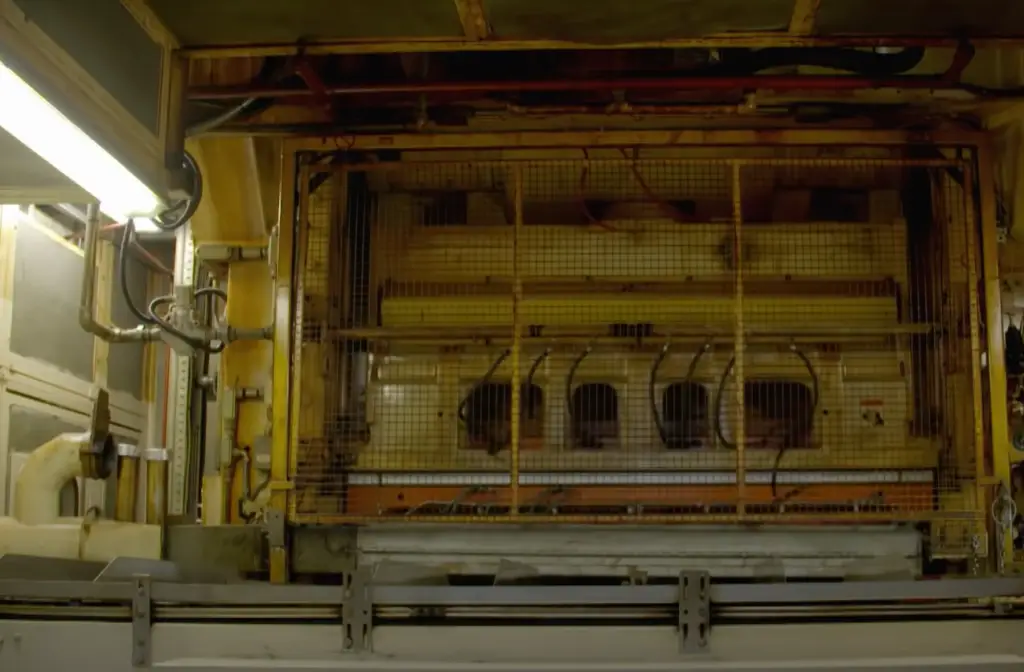
In this way, aluminum pans can be used repeatedly without losing their original shape or luster. This makes them a great investment for any person who wants long-lasting cookware that will give them years of reliable use. With all these features combined, it’s no wonder why aluminum remains a popular choice among people.
How Does the Aluminum Recycling Process Happen?
Once aluminum pans and other materials are collected for recycling, the process begins by sorting and cleaning the items. This is necessary to remove any contaminants or debris that might be present before the items can be melted down and reused. After sorting and cleaning, the aluminum is then crushed into small pieces and shredded into tiny flakes or chips. These chips are then melted down in specialized furnaces at very high temperatures.
Once molten, a powerful magnet is used to separate out any impurities from the liquid metal which helps improve its quality for reuse. The new molten aluminum can then be poured into molds to make new products such as kitchen pans, foil wrapping, vehicle parts, etc. [6]
Thanks to this process of recycling old products made from aluminum, manufacturers can reduce their energy and carbon emissions compared to creating these items from raw materials. Not only does this have a positive environmental impact, but it also helps to keep costs down for consumers as well.
The Benefits of Recycling Aluminum Pans
Recycling aluminum pans is not only good for the environment, but it also has many practical benefits. Aluminum is a very durable material and can be recycled an unlimited number of times without losing any of its properties.
Additionally, recycling aluminum pans helps to save energy since it requires significantly less energy to recycle than it does to produce new materials from scratch. This makes it a much more cost-effective option when compared to buying new products. Furthermore, due to its low weight and high recyclability rate, aluminum is one of the most environmentally friendly metals available today.
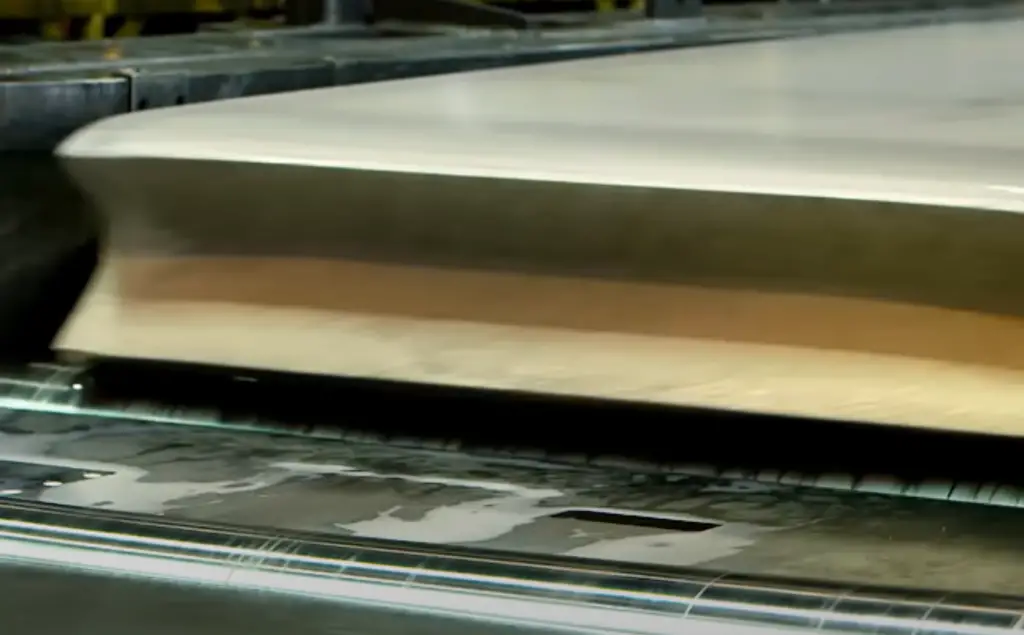
Not only is recycling aluminum pans great for the environment, but it can also help to boost local economies. Recycling centers pay top dollar for scrap metal and by reusing aluminum pans, you are helping create jobs in your community and stimulating economic growth.
Finally, recycling aluminum pans is a great way to help protect our planet from pollution and climate change. By diverting metals away from landfills, we can dramatically reduce air and water pollution while at the same time conserving natural resources. [7]
5 Tips on How to Recycle Aluminum Pans
- Separate aluminum pans from other materials: Before you begin recycling, it is important to separate aluminum pans from other metal items, plastic or glass containers, and paper products. This helps make the job of sorting easier for your local recycler.
- Remove food residue: For safe and efficient recycling, be sure to remove all food particles from aluminum pans prior to throwing them in the bin. Wipe out any remaining residue with a damp cloth or sponge.
- Rinse thoroughly: After wiping down the pan with a cloth or sponge, rinse it off with water until it is clean and free of debris.
- Crush cans if needed: If your local recycling center requires that aluminum pans be crushed in order to fit within a certain size container, you can do this yourself with a heavy-duty can crusher.
- Check local laws: Before recycling aluminum pans, make sure you are following all local laws and regulations regarding proper disposal of household waste. Your municipality may also have specific guidelines for the type of container that should be used for aluminum cans.
Following these tips will help ensure that your aluminum pans are recycled correctly and safely.
10 Ways to Reuse Aluminum Pans
- Use aluminum pans to organize items in the garage or shed. This helps keep small parts, such as nuts and bolts, easily accessible and organized.
- Create a unique planter by arranging multiple aluminum pans of different sizes together and planting succulents or herbs inside for an easy garden project.
- Hand wash and reuse aluminum pans for cooking tasks, such as roasting vegetables or baking cakes and cookies. Aluminum conducts heat quickly so it is perfect for a range of recipes when used with appropriate oven safety guidelines.
- Cut up the bottom of an aluminum pan to create a tray for painting projects that’s easier to clean than canvas or paper-based palettes.
- Use a thin aluminum pan to create an oven-safe enameled jewelry bowl that can even be used on the stovetop.
- Create gift baskets by lining an aluminum pan with tissue paper and filling it with small items or treats for loved ones.
- Cut and shape aluminum pans into fun shapes, such as stars or flowers, then use them to store small items like thread or buttons in drawers or cabinets.
- Cut up an aluminum pan and use the pieces to line shelves around the house for extra protection against messes and spills.
- Turn an old aluminum pan into a bird feeder – perfect for bringing birds right up close!
- Make your own solar cooker. Aluminum pans can be used to trap the sun’s heat and cook food using nothing but sunshine! [8]
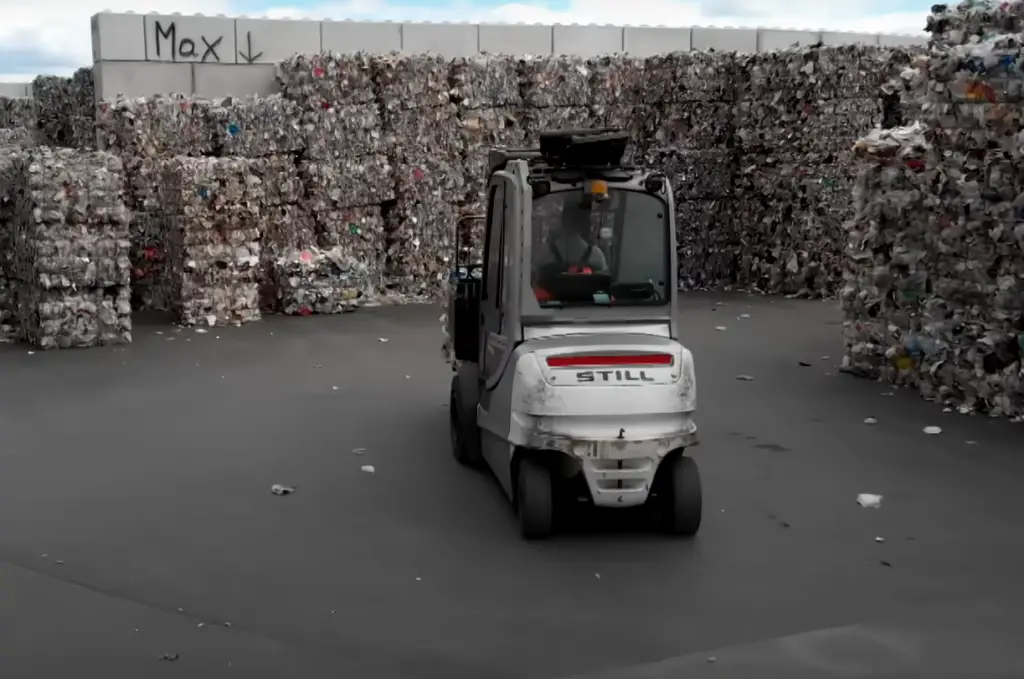
These are just some of the many ways that aluminum pans can be reused and repurposed before being recycled. With a bit of creativity, the uses for an aluminum pan in the home are endless!
FAQs
How do you recycle aluminum trays?
Most aluminum trays are recyclable, however it is always best to check with your local recycling center or municipality to determine what materials they accept. Generally, aluminum trays should be cleaned of any food residue before being placed in the recycling bin. Some curbside programs may not accept them due to their size and density, so you may need to take them to a dedicated drop-off location.
Can you put metal pans in the recycling bin?
Yes, metal pans are generally accepted in most curbside recycling programs. Make sure that all food residue is removed before placing the pan in the recycle bin. Additionally, try to flatten or break down the pan as much as possible to make it easier for the recycling facility to process.
Is aluminum biodegradable and recyclable?
Yes, aluminum is both biodegradable and recyclable. It can be recycled an indefinite number of times without losing its properties. Additionally, it takes far less energy to recycle aluminum than it does to produce new aluminum from its ore. Recycling aluminum also conserves natural resources such as bauxite, the primary source of aluminum ore.
Why is aluminum foil not recyclable?
Aluminum foil is not typically recycled because it is too thin and lightweight to be sorted properly at most recycling facilities. Additionally, the surface of aluminum foil often has residue from food or other substances which can contaminate other recyclables. It is best to check with your local recycling center for specific guidelines regarding aluminum foil.
Useful Video: Aluminum Cans Recycling | 5 Steps You Must Know
Conclusion
In conclusion, recycling aluminum is an easy and effective way to reduce our carbon footprint and take better care of the environment. It can even be a great way to make money, as scrap metal dealers are all too willing to purchase it from anyone who brings it. Recycling aluminum is a small task that can have lasting impacts if done periodically and diligently by the public. When everyone donates their time and effort towards sustainable projects such as aluminum recycling, the oceans remain clean and so does Earth’s atmosphere. We can create a better tomorrow by taking positive action today, starting with implementing simple strategies such as aluminum recycling into our daily lives. So next time you’re out, remember – why not save a little energy and save Mother Nature? Be friendly to your future self – recycle!
References:
- https://www.recyclenow.com/how-to-recycle/why-is-recycling-important
- https://www.growingcity.com/blog/recycling-should-be-mandatory
- https://www.rubicon.com/blog/what-can-be-recycled/
- https://baleforce.com/products-you-didnt-know-were-made-with-aluminum
- https://www.cnpococina.com/news/three-advantages-and-disadvantages-of-aluminum-cookware-set.html
- https://greentumble.com/how-is-aluminum-recycled
- https://blog.thepipingmart.com/metals/6-benefits-of-recycling-aluminum/
- https://earth911.com/home-garden/9-ways-to-reuse-an-aluminum-pie-plate/

